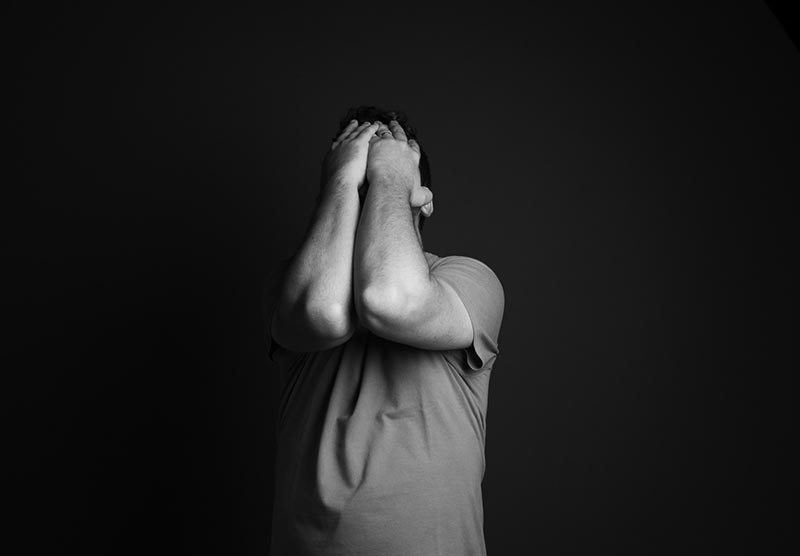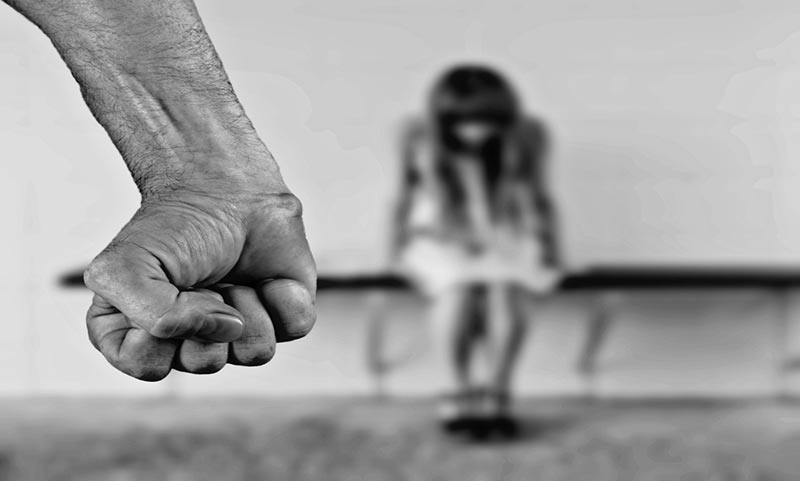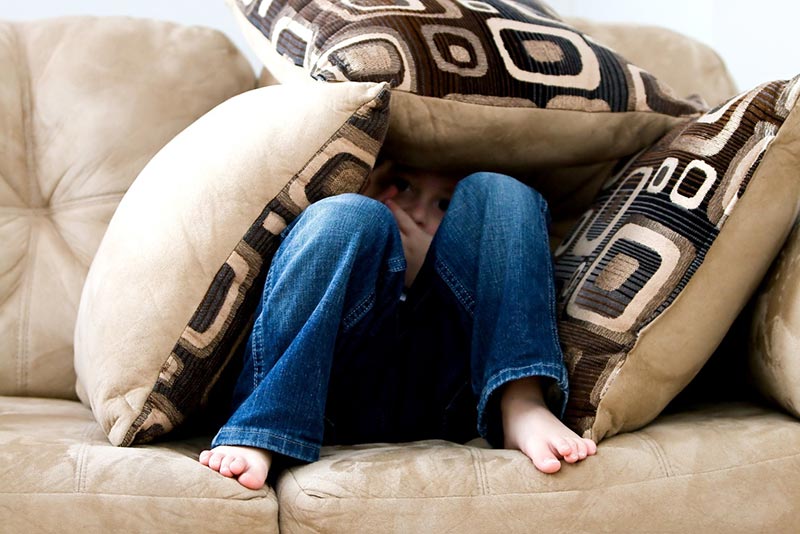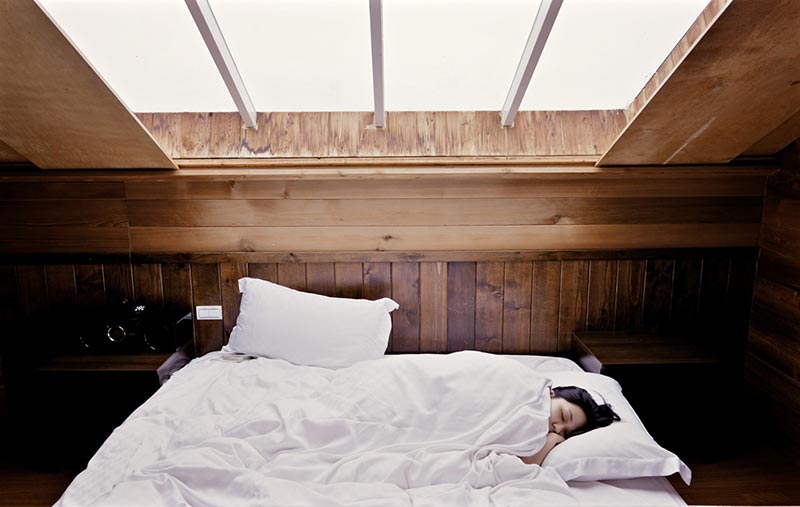Anxiety and sleep are often interconnected. And when these two exist, a person needs more than physical help. Mental health affects our whole being, from how we feel to how we act. Clearly, it’s something that deserves utmost attention and care. Because of its relevance, we’re here to walk you through the common anxiety disorders that may have an impact on your sleep. But before that, let’s get to know more about anxiety as a whole, along with its key relationship to different sleeping problems.
Anxiety and Sleep
In general, anxiety is a common reaction when you feel stressed out or you are unease with something. With such a reaction, it could cause mood change or even elevated blood pressure. Experiencing this kind of feeling is normal and definitely not a bad thing.
On the other hand, we have these anxiety disorders that are characterized by a more disproportionate and lingering reaction to stress. Because of the extremity of the response, it impairs the psychological being, hence becoming a mental illness. Unfortunately, this kind of mental sickness is still being stigmatized by many. Break the chain and be informed about the different anxiety disorders. We will elaborate on its definition, symptoms, diagnosis, and treatment so you become more aware of the importance of mental health.
Generalized Anxiety Disorder
Commonly known as GAD, Generalized Anxiety Disorder is described as persistent worrying and tension of various matters. This often endures for six months or even more. Unlike normal anxiety, people with GAD worry almost every day and always expect the worst.
Symptoms
- Consistent worrying of many things
- Always overthinking
- Always stressing about worst-case scenarios
- Inability to concentrate and relax
- Indecisiveness that often lead to decision-making paralysis
- Difficulty dealing with uncertainties
Diagnosis
GAD might be the most recognized kind of anxiety disorder; however, determining a person to be in this category can be tricky. It’s because some of the symptoms are existent in other anxiety disorders. The indicator of the GAD diagnosis mainly relies on the persistence of extreme worry that lasts for at least six months. And because of consistent worry and tension, a person with GAD does not have a proper sleeping pattern.
Treatment
Treating GAD is not an overnight process. And the most common methods to tend this mental illness are through psychotherapy and drugs. Once you alleviate and completely erase the symptoms of GAD, it positively impacts not just your sleeping pattern but also your whole being.

Social Anxiety Disorder
From the name itself, Social Anxiety Disorder is an illness that involves persistent fear of social interactions. This includes extreme uneasiness when exposed to unfamiliar surroundings and crowds. Moreover, a person with this anxiety disorder is not just embarrassed but also afraid of judgment by other people.
Symptoms
- Avoidance of social gathering for a period of 6 months or more
- Such avoidance and anxiety affects the normal routine
- Persistent fear in performance situations
- Extremely afraid of public scrutiny
- May experience panic attacks (racing heart, chest pain, trembling, sweating, or nausea) when exposed to a feared situation
Diagnosis
Socially anxious people have persistent fear when mingling with other people. Furthermore, it impairs their physical routine, professional undertakings, and even relationships. Their anxiety is mainly caused by social interaction; hence they avoid social situations as much as possible.
Treatment
Cognitive Behavioral Therapy is one of the most effective methods for treating persons with GAD. Antidepressants can be of great help too. Likewise, having a good sleep is highly recommended for socially anxious individuals to help them relax their brain and ease up the tension.
Obsessive-Compulsive Disorder
Obsessive-compulsive disorder is a mental illness diagnosed to a person with repeated thoughts in a negative way. With such obsessions, it generates repetitive behaviors or compulsions that cause distress. More so, it affects daily functioning.
Symptoms
- Excessive cleanliness because of fear of germs
- Highly preoccupied with symmetry, order, colors, and such
- Unwanted thoughts on things like explicit images and violence
- Extreme focus on moral ideas and religion
- Anxiousness in losing control
Diagnosis
OCD-afflicted individuals have the inability to control their thoughts and ideas; hence, they put so much effort to accomplish their excessive ideas and thoughts into action. There are key factors before someone is diagnosed with OCD. There should be obsession and compulsion that interfere with normal routines and even their sleep.
Treatment
Exposure and Response Prevention Therapy, which is a type of Cognitive Behavioral Therapy, is an efficient technique for treating persons with OCD. Aside from that, antidepressants work well to loosen up the triggers and handle unwanted thoughts properly.
Phobias
Phobias are intense and irrational fears of a certain situation, object, or place. Because of your intense fear, it can lead to panic attacks and anticipatory anxiety. There are three main kinds of phobia―Agoraphobia (fear of situations or place you can’t control and escape from), Social phobia (also known as Social Anxiety Disorder), and Specific phobia (certain fear that affects your daily life).
Symptoms
- Extreme sweating
- Difficulty breathing
- Inability to speak
- Chest pain
- Choking sensation
Diagnosis
To diagnose a phobia, the doctor will inquire about the source of your fears as well as the weight of these fears in your normal life.
Treatment
Just like most anxiety disorders, Cognitive Behavioral Therapy really helps those with a phobia. In addition, anti-anxiety medications can aid in calming your fear and reactions.

Post-Traumatic Stress Disorder (PTSD)
This mental illness occurs from a terrifying or depressing experience or series of events. Individuals with PTSD have trauma that causes nightmares, stress, and intense anxiety.
Symptoms
- Vivid and recurring flashbacks
- Disturbing thoughts
- Constant nightmares
- Emotional instability
- Extreme distress
Diagnosis
Patients have to be transparent to their doctors in reporting the symptoms as well as their history of trauma (death of a loved one, sexual abuse, or serious injury). This will help in evaluating if you really have PTSD or another kind of anxiety disorder.
Treatment
Therapy and antidepressants are the best treatment for PTSD patients. The medication, in particular, provides you better sleep and alleviates possible nightmares.
Panic Disorder
Panic disorder is often characterized by physical, extreme occurences because of a certain fear. This kind of mental illness can be mild or acute and is often associated with panic attacks.
Symptoms
- Hyperventilation
- Extreme trembling
- Heart palpitations
- Behavioral change during a panic attack
- Insomnia
Diagnosis
Panic disorder is specifically diagnosed when your panic attacks are recurring or it happens month after month. Another thing to consider is that the cause of your panic attacks is not due to substance use or other medical conditions.
Treatment
Those suffering panic disorders need to undergo cognitive therapy to distinguish the main triggers of their fear. Through this, it will assist in restructuring your thoughts and reactions accordingly.
Pediatric Anxiety Disorders
Pediatric Anxiety Disorders are a collection of dysfunctional anxiety or fear of loss among children. However, this can persist when the child matures and enters the phase of early adulthood. These anxiety disorders can show as early as 6 months old and can grow into specific phobias if not treated earlier.

Symptoms
- Extreme shyness
- Demonstration of a specific phobia
- Separation anxiety
- Refuses to speak or socialize with others
Diagnosis
Generally, a child’s behavior is considered by parents and teachers as a customary phase that will soon be outgrown. However, if your child has recurring anxiety or phobia that lasts for at least six months, it’s highly recommended to ask for a diagnosis from a doctor.
Treatment
As always, Cognitive Behavioral Therapy is the first line in terms of anxiety disorder treatments. More than that, parents’ support really has a huge role in helping a child overcome this mental illness. Always recognize your child’s accomplishment and give them time for transitions.

Tips for Sleeping with Anxiety
Anxiety disorders largely interfere with your sleeping. Therefore, it’s important that you get a good rest to improve your cognitive functions. Here are some relevant tips that you can make use of when you have anxiety.
- Follow a routine. It’s highly recommended that you have a sleeping pattern when to go to bed and when to wake up. You can also incorporate regular exercise and meditation to prepare your mind before sleeping.
- Keep track of your activities. To evaluate your disorder properly, you can create a specific diary where you can write down all your thoughts. This is a great way to release tension and track your progress.
- Converse with your doctor or therapist about your sleep troubles. There’s nothing to be ashamed of when talking about your anxiety and sleep issues. This would help pinpoint the causes and provide proper treatment.
- Request for sleep supplements, if needed. If your anxiety is messing up with your sleep, you can ask for sleep supplements from your doctor. Melatonin and CBD oil are some possible aids that regulate sleep.
- Make use of a weighted blanket. This works wonders to calm your anxiousness and help you feel more secure. A weighted blanket offers amazing benefits when sleeping because of its cosy composition.
Takeaway when dealing with anxiety and sleep
Clearly, anxiety and sleep are interconnected. Therefore, you need to give priority to your body’s sleeping cycle. Yes, treating an anxiety disorder is not an easy process. But having a decent amount of sleep has a positive impact on your mental health. So, always value this period when your body gets to restore and strengthen its features.



